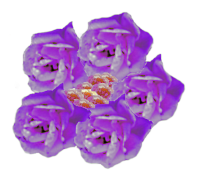
Image Credit: Free Soul by @m1alsan from the LMAC Image Library. Public domain.
The history of jazz in South Africa and the life Abdullah Ibrahim are inextricably linked. He has been referred to as the "Liszt of South African jazz piano". At the age of 25 Ibrahim became part of a band in Capetown, the Jazz Epistles. This band recorded the "...the first all-black modern jazz album in South Africa.".
Excerpt from the 1959 album:
When this album was recorded Abdullah Ibrahim was known as Dollar Brand. That name evolved from his birth name, Adolph Johannes Brand.
In Shakespeare's Romeo and Juliet, Juliet asks, "What's in a name?" If we look at the evolution of Abdullah Ibrahim's name, we can see a symbolic representation of South African history.
Ibrahim was born in Capetown, South Africa, 1934. According to the racial politics of the time, he was characterized as 'Coloured'. His father was of the Sotho Ethnic group and his mother was mixed race, also characterized as 'Coloured'. When Abdullah was four, his father was murdered. The boy therefore grew up under the strong influence of his mother. Both his mother and grandmother were pianists.
Ibrahim began formal piano lessons at the age of seven and made his professional debut at the age of 15. He was prevented from attending University of Cape Town's College of Music because of his race, but continued to play at venues throughout Capetown. His friends began to call him 'Dollar Brand'.
Music was in Ibrahim's blood, and it was in the cultural soup all around him. He describes the musical influences of his youth: "American jazz, township jive, CapeMalay music, as well as...classical music."
In the trailer for the movie The Silver Fez, we get an idea of what Cape Malay music sounded like, and the influence it may have had on young Dollar Brand:
South African Jive: I had a little trouble tracking down the original sound of South African jive, but according to slipcue.com, the Manhattan Brothers were representative of the original sound. Here's a sample of their music. This piece is entitled Chaka and is dated circa 1950s.
After the Sharpeville Massacre of 1960, apartheid restrictions were tightened. Ibrahim described the challenge of being a musician in that time:
...you could only play with other musicians designated to your own ethnic or tribal group, and to audiences of your own ethnic or tribal group. But...the only way to police us was when we were playing in public places, so we played privately. In homes, in communities, and we created our own venues.”
Musicians that could manage it, left South Africa and began to play in other countries. Ibrahim moved to Zurich, Switzerland in 1962. There he met Duke Ellington. They traveled to Paris and Ellington recorded an album by Ibrahim. Here's an excerpt from that album, Duke Ellington Presents Dollar Brand (1963).
In 1965, Ibrahim (still known as Brand) moved to New York. There he attended Julliard and focused on string instruments. In 1968, Dollar Brand converted to Islam and took the name Abdullah Ibrahim.
According to the University of Witwatersrand (Johannesburg), Ibrahim's music reflected his conversion. It emphasized not only Islamic themes at this point, but also promoted a positive view of Africa.
Here is a piece (that I very much enjoyed) produced in 1974, Good News From Africa:
It would be difficult to exaggerate the influence Ibrahim has had on South African music and culture. He became not only a musician, but a vibrant representation of Apartheid resistance. He performed at Nelson Mandela's inauguration in 1994, and Mandela referred to him as the 'African Mozart'.
Today 88-year-old Abdullah Ibrahim continues to perform. I first heard him when I was listening to my favorite jazz station on the car radio. That station devotes an hour to South African jazz. I didn't even know there was a South African jazz genre until it came through my radio. One day a piece by Ibrahim caught my attention. I came home, did some reading, and listened.
I hope you find the arc of Abdullah Ibrahim's life as worthy of interest as I do, and I hope you enjoy the selections I highlighted below. In my view, this man is greater than the music he created. He used his music to become a force for change.
Ibrahim has been quite prolific. I listened to a lot of his music in preparation for this blog. Below I've linked to a few pieces I liked especially.
African Marketplace, 1979
Capetown Flower, 1999
Chisa, 1998
Mannenberg, 1974
Kalahari, 1974
Sources
Ending bouquet adapted from images in the LMAC Image Gallery:
flowers by @yaziris
flowers by @muelli
https://www.slipcue.com/music/international/africa/aa_styles/jazznjive_01.html
https://jazztimes.com/features/profiles/abdullah-ibrahim-grace-under-pressure/
https://abdullahibrahim.co.za/biography/
https://www.wits.ac.za/alumni/distinguished-graduates/honorary-degree-citations/abdullah-ibrahim/
https://www.dakotacooks.com/2018/04/10/mozart-south-africa-abdullah-ibrahim-dakota/#

